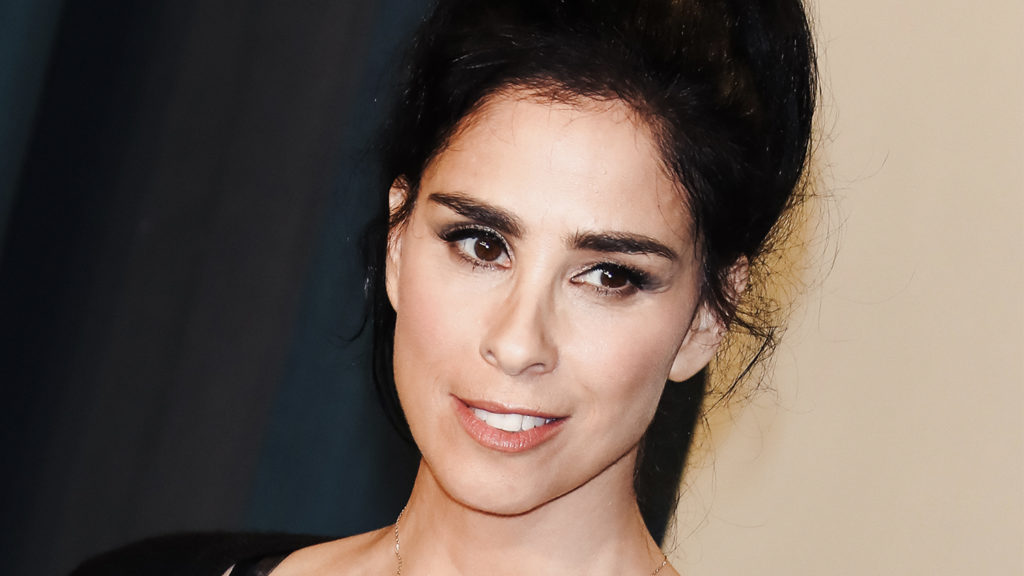Comedian, actor, and longtime vegetarian Sarah Silverman just pledged to go vegan.
In a recent episode of The Sarah Silverman Podcast, she addressed a voicemail message left by a listener highlighting the interconnectedness of the meat and dairy industries. Silverman, who is vegetarian for ethical reasons, first responded by saying “he’s right” several times.
“That’s what I needed. I can’t unring this bell of information […] I’m gonna try to go vegan,” she added. “I think you’ve just witnessed me get officially grossed out and not want to be a part of this [the dairy industry] anymore. And the environment thing is so real. The cows, that’s such a giant [carbon] footprint.”
‘I Can Easily Adjust’
Silverman explained that she recently cut eggs out of her diet because “it grosses me out.” She also highlighted her need to find vegan substitutes for dairy products such as sliced cheese, butter, whipped cream for coffee, and ice cream. The listener suggested she try any of the rapidly advancing range of dairy-free products available in 2020, specifically Ben & Jerry’s vegan cookie dough.
“There’s so many good substitutes,” said Silverman. “They exist. I just have to get them and maybe try a few and find the one I like.” She added: “I like all those things. I can easily adjust to all those things.”
Silverman also highlighted the cognitive dissonance required to live with cats and dogs but eat farm animals. The actor has been a vegetarian since the age of 7. In a 2009 interview with Marie Claire, Silverman said that a trip to a neighboring turkey farm to pick out her dinner first prompted her to ditch meat.
“Blood and feathers went flying,” she said. “I had sentenced that turkey to death! Up until then, I didn’t know where meat came from — and I’ve been a vegetarian ever since.”
The Environmental Impact of the Dairy Industry
According to the Food and Agriculture Organization, animal farming produces 35-40 percent of all anthropogenic methane emissions.
Data from the Intergovernmental Panel on Climate Change (IPPC) indicates that meat and dairy produce approximately 619 million metric tons of emissions in total, of which 259 million metric tons are CO2 equivalents.
According to a report by the University of Michigan and Tulane University, replacing 50 percent of animal products in the U.S. diet with plant-based food could prevent 1.6 billion tons of greenhouse gas emissions by the year 2030.
“I’ll report on how that’s going,” finished Silverman. “Because cows are beautiful.”


